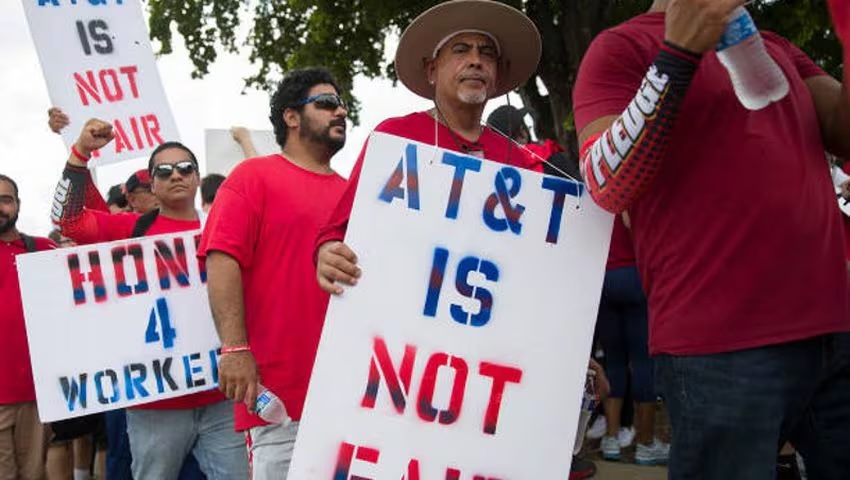Technicians and customer service representatives are picketing with 17,000 employees from AT&T Southeast. The protest is taking place to voice concerns over working conditions, pay, and benefits. Workers are expressing frustrations about their compensation and job security amidst ongoing negotiations with the company.
Many workers believe that their workload has increased without appropriate recognition or financial reward. They argue that customer service representatives face challenges daily and feel that their efforts are not adequately valued. Technicians echo these sentiments, pointing out the physical demands of their roles.
The protest site has drawn a crowd, showcasing the determination of employees to improve their situation. Strikers hold signs calling for fair treatment and better pay. The gathering includes a mix of union members and community supporters who have joined the workers in solidarity. Organizers of the event believe that visible demonstrations will draw attention to their cause.
AT&T Southeast has issued a statement regarding the situation. The company acknowledges the workers’ concerns and emphasizes its commitment to negotiations. The statement highlights the company’s efforts in providing competitive salaries and benefits packages. However, many employees feel that the company’s response does not address their fundamental issues.
The picketing is part of a broader trend in the telecommunications industry. Workers in various sectors are increasingly advocating for improved workplace conditions. Unions across the country are pushing for better contracts that reflect the rising cost of living and increased workloads.
In recent weeks, other unions have also organized similar actions across different regions. The protests have highlighted the importance of collective bargaining and worker rights. Employees are hopeful that their continued efforts will lead to meaningful changes.
Leaders of the picketing groups stress the need for ongoing dialogues with management. They highlight that transparent communication is essential for reaching a resolution. Both sides are under pressure to find a compromise that satisfies the workforce while maintaining the company’s operational goals.

